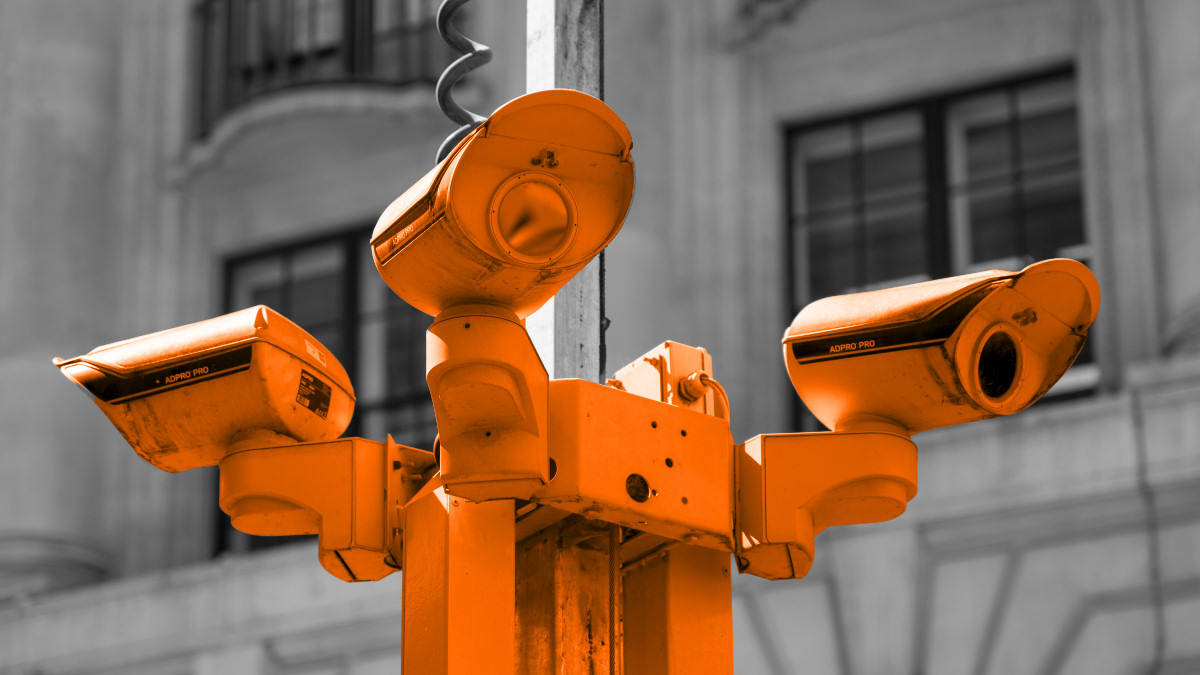Oracle’s chairman and chief technology officer, Larry Ellison, recently hinted at a future where AI-powered surveillance systems may dictate social norms and behavior. Speaking at Oracle’s financial analyst meeting, Ellison painted a picture of a world where Oracle’s technology could be used to monitor every aspect of life.
“Citizens will be on their best behavior because we’re constantly recording and reporting everything that is going on,” Ellison said last week. “It’s AI that’s looking at the cameras.”
Surveillance Beyond Security: AI for Law Enforcement and Beyond

Ellison’s remarks touched on how AI could extend into areas like health, education, and notably, law enforcement. He explained Oracle’s work with police body cameras, describing a new level of oversight.
“We completely redesigned body cameras,” said the tech billionaire.
“The camera’s always on. You don’t turn it on and off.”
This new surveillance approach means that every moment an officer spends on duty—whether in action, at lunch, or even in the restroom—is recorded. Ellison highlighted that officers needing privacy must notify Oracle to turn off the camera. However, even when “off,” the camera keeps recording, albeit shielded from view unless a court order allows access.
“We’ll turn it off. Truth is, we don’t really turn it off. What we do is we record it so no one can see it,” Ellison stated. “No one can get into that recording without a court order. You get the privacy you requested … but if you get a court order, we will judge — I want to look at that, this so-called bathroom break.”
AI as the New Panopticon: Watching and Reporting in Real-Time
Ellison explained that every video recorded is sent back to headquarters, where AI algorithms monitor the footage for any behavior it flags as unusual. This surveillance system acts as a digital panopticon, potentially impacting not only police officers but citizens as well.
“Because we’re constantly recording — watching and recording — everything that’s going on,” he explained. “Police officers and citizens alike would be more inclined to behave as convention and law dictated they should.”
Critics have warned of the implications of this pervasive surveillance, likening it to a “supervision” network that could soon resemble the surveillance state seen in countries like China and, increasingly, the U.K.
Privacy Concerns and a Shady Past: Oracle’s $115 Million Settlement

While Ellison described the AI-driven surveillance as a way to curtail police misconduct, Oracle’s recent history of privacy concerns has fueled skepticism. In July, Oracle agreed to a $115 million settlement to resolve allegations of violating privacy laws by selling user data to third parties without consent. The lawsuit claimed Oracle had built “digital dossiers” on millions of people, selling these profiles to marketers and other clients.
Privacy advocates are alarmed, pointing to similar AI-driven surveillance systems in the U.K. Former U.K. Home Office biometrics and surveillance commissioner Fraser Sampson highlighted Britain’s “omni-surveillance” state, supercharged by AI.
“There isn’t much not being watched by somebody,” said Sampson in an interview last year. “When all that needed a human to edit it, it wasn’t an issue because no one was going to live long enough to get through 10 minutes. But now you can do it with AI editing. All of a sudden you can tap that ocean.”
As live facial recognition expands under Britain’s current Labor government, Ellison’s vision has raised concerns that a similar path could be followed in the U.S.
Pushing Back: Activists Take to the Streets
As Western governments adopt more surveillance, so-called Blade Runner activists have launched their own form of protest, tearing down cameras in public spaces to challenge this growing encroachment on personal freedoms.



